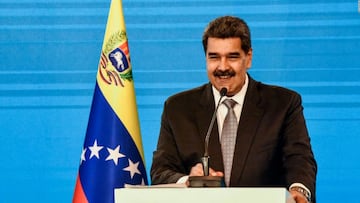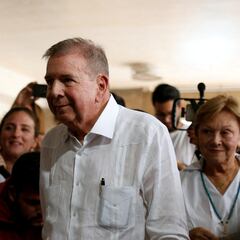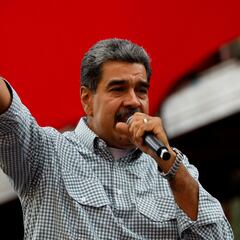Venezuelan President Nicolás Maduro brings Christmas forward to October 1st
Following the blackout that hit Venezuela on August 30, Maduro has announced that the Christmas holidays will be brought forward to October 1.

Venezuelan President Nicolas Maduro has announced that Christmas festivities will be brought forward to early October. “It’s September and it already smells like Christmas, it smells like Christmas. And that’s why this year, in homage to you, in gratitude to you, I am going to decree bringing forward Christmas to October 1,” the Venezuelan president said on his television show, shortly after the Attorney General’s Office ordered the arrest of opposition candidate Edmundo Gonzalez, accused of alleged crimes linked to terrorism.
This is not the first time that the Venezuelan president has brought forward Christmas in Venezuela. In 2020, the start of the holiday was decreed to begin October 15 as a distraction from the serious problems that the country went through during the Covid-19 pandemic. Maduro also moved the start of Christmas forward the following year, this time to October 4.
Maduro decrees Christmas in October
Maduro wanted to recall what happened last Friday, August 30, when a massive blackout affected around 80% of Venezuelan territory. The authorities attributed the collapse of the electrical system to their political adversaries. However, the president stated “The people continued working, laboring, and with the support of the working class, in perfect civic-military-police union, we guarantee absolute peace.”
After this, Maduro insisted: “Christmas will start on October 1st. For everyone, Christmas has arrived, with peace, happiness and security.” It is expected that the government, as it usually does during the weeks before the end-of-year holidays, will intensify the distribution of aid and food bags in neighborhoods.
Nicolás Maduro has decreed that Christmas celebrations in Venezuela will now begin on October 1st "for everyone."
— OSINT Aggregator (@AggregateOsint) September 3, 2024
Watch the announcement in the subtitled video below. pic.twitter.com/6mcOhjqKYA
Results of Venezuelan elections contested
Just after Christmas, Maduro is scheduled to take office for his third term on January 10, when the new political cycle will begin based on the results of the June 28 elections released by the National Electoral Council and for which no evidence has yet been presented by the authorities that Maduro won.
Related stories
On the flip side of the coin, opposition leaders María Corina Machado and Edmundo González rejected those results by refuting them with the publication of the inspection records compiled by their witnesses or table observers.
The anti-Chavez alliance thus promises to maintain the pressure and hopes that the international community will not recognize the legitimacy of Nicolás Maduro’s third presidency.


Complete your personal details to comment